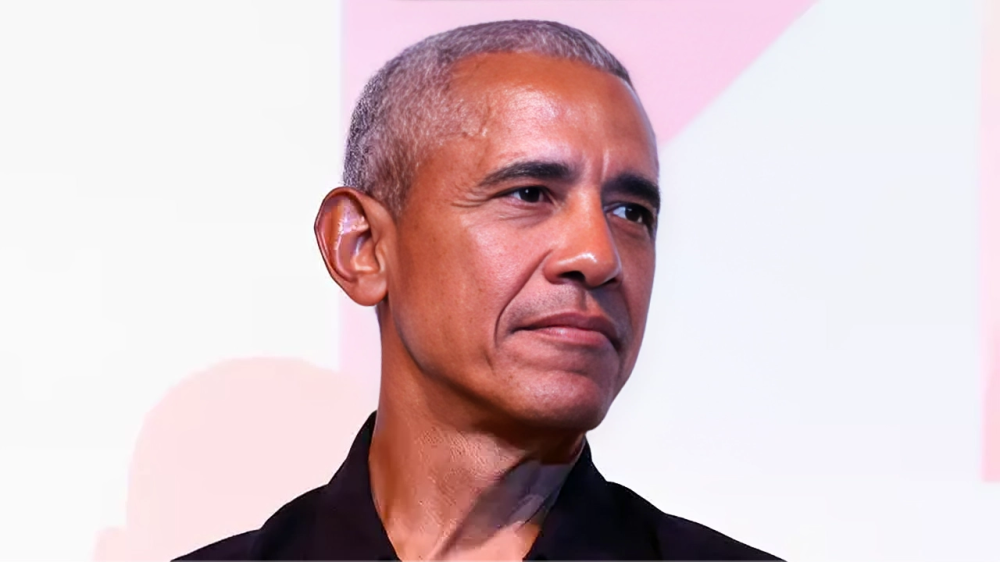When Joe Biden abruptly exited the 2024 presidential race amid health concerns, the Democratic Party was thrown into chaos. Within hours, then–Vice President Kamala Harris was thrust into the spotlight — quickly endorsed by Biden himself and soon after by Nancy Pelosi.
But, according to a bombshell new book, Barack Obama wasn’t pleased with how fast things moved.
The revelation sheds new light on behind-the-scenes tensions among the party’s most powerful figures — and how a single phone call between Obama and Pelosi allegedly captured the unease and confusion that gripped Democrats in the wake of Biden’s withdrawal.
A Sudden Exit, A Swift Endorsement
Biden’s departure from the 2024 race was as emotional as it was historic. Facing mounting pressure over his age and recurring health issues, he announced he would not seek re-election against Donald Trump, ending a presidency defined by both resilience and controversy.
“Today I want to offer my full support and endorsement for Kamala to be the nominee of our party this year,” Biden said in his announcement. “Democrats — it’s time to come together and beat Trump. Let’s do this.”
Within hours, prominent Democrats followed suit. Pelosi — the longtime former Speaker of the House and one of the most influential women in American politics — publicly backed Harris, declaring she had “full confidence” in her ability to defeat Trump.
At the time, the move looked like a natural step. But inside the highest circles of the Democratic Party, not everyone agreed.
Obama’s Private Frustration
According to Jonathan Karl’s new book Retribution, Obama was caught off guard — and deeply frustrated — by Pelosi’s early endorsement.
Karl writes that the Obamas “were not happy” with how quickly Harris was being “anointed” as Biden’s successor.
A source familiar with the matter told Karl that a confidant of Pelosi described Obama’s reaction bluntly:
“Obama’s message to Pelosi was, essentially, ‘What the f–k did you just do?’”
Karl adds that, just days before Pelosi’s statement, Obama and Pelosi had privately agreed to avoid making any endorsements until a proper process could take place to select the next nominee.
They both reportedly believed that “Harris should not simply be handed the nomination unchallenged.”
The Phone Call Everyone’s Talking About
Karl’s book describes a tense phone call between Obama and Pelosi shortly after she publicly threw her support behind Harris.
While reports initially framed it as a heated argument, Karl says it was more of a sharp, candid exchange — a moment of “good-natured ribbing” between two political veterans who understood the stakes.
Still, Obama’s tone reportedly carried a mix of confusion and exasperation.
“The former president wanted to know what had happened,” Karl wrote. “Why had Pelosi issued a statement endorsing Harris so soon? Hadn’t he and Pelosi agreed days earlier that an immediate endorsement would be a mistake?”
In other words — Obama wasn’t furious at Pelosi herself. He was furious at how fast the party was moving to close ranks around Harris before other potential contenders even had a chance to breathe.
Pressure Mounts on Pelosi
Despite Obama’s reservations, Pelosi was under enormous pressure. The moment Biden announced he was stepping aside, the Democratic establishment scrambled to avoid chaos.
Governors Gavin Newsom of California and Josh Shapiro of Pennsylvania quickly endorsed Harris, while major donors and strategists pushed for unity to prevent a public civil war.
At that point, Karl explains, Pelosi “had no choice.”
“No other candidates had stepped forward — Kamala Harris was it,” he wrote. “The only thing Pelosi could do was try to help her win the election.”
Pelosi’s calculation was pragmatic: the Democratic Party needed a unified message — fast — or risk handing Trump an early advantage.
But the decision also exposed the delicate balance of power within the Democratic elite. Obama, still the party’s most revered figure, wanted deliberation. Pelosi, the veteran strategist, wanted decisiveness.
A Rift in the Inner Circle
For Democrats, the episode underscored an uncomfortable reality — that even their most experienced leaders were struggling to adapt to the new political landscape.
Pelosi’s move made Harris the inevitable nominee before any real debate could occur, leaving some in the party feeling sidelined.
Obama’s hesitation wasn’t about Harris personally — he ultimately endorsed her and campaigned in her favor — but rather about optics, timing, and the precedent it set.
He reportedly believed a rushed endorsement risked alienating moderates, independents, and rising Democratic stars who might have wanted to compete.
Behind closed doors, one adviser described the moment as “the day the Democratic machine overrode democracy.”
What Comes Next
Now, as excerpts from Retribution make headlines, both Obama and Pelosi’s teams have declined to comment publicly on the alleged exchange.
But the story has already sparked renewed debate about how the Democratic Party makes decisions — and who truly holds power behind the scenes.
For many, it’s also a glimpse at the enduring influence of Obama, who despite leaving office years ago, remains a central figure in shaping the party’s future.
Whether the alleged phone call was heated or humorous, it reveals the tension between two political titans navigating one of the most chaotic transitions in modern history.
And for Harris, the revelations are a reminder that even her own rise to the top wasn’t without turmoil.

James Jenkins is a celebrated Pulitzer Prize-winning author whose work has reshaped the way readers think about social justice and human rights in America. Raised in Atlanta, Georgia, James grew up in a community that instilled in him both resilience and a strong sense of responsibility toward others. After studying political science and creative writing at Howard University, he worked as a journalist covering civil rights issues before dedicating himself fully to fiction. His novels are known for their sharp, empathetic portraits of marginalized communities and for weaving personal stories with broader political realities. Jenkins’s breakout novel, Shadows of Freedom, won national acclaim for its unflinching look at systemic inequality, while his more recent works explore themes of identity, resilience, and the fight for dignity in the face of oppression. Beyond his novels, James is an active public speaker, lecturing at universities and participating in nonprofit initiatives that support literacy and community empowerment. He believes that storytelling is a way to preserve history and inspire change. When not writing, James enjoys jazz music, mentoring young writers, and traveling with his family to explore cultures and stories around the world.








